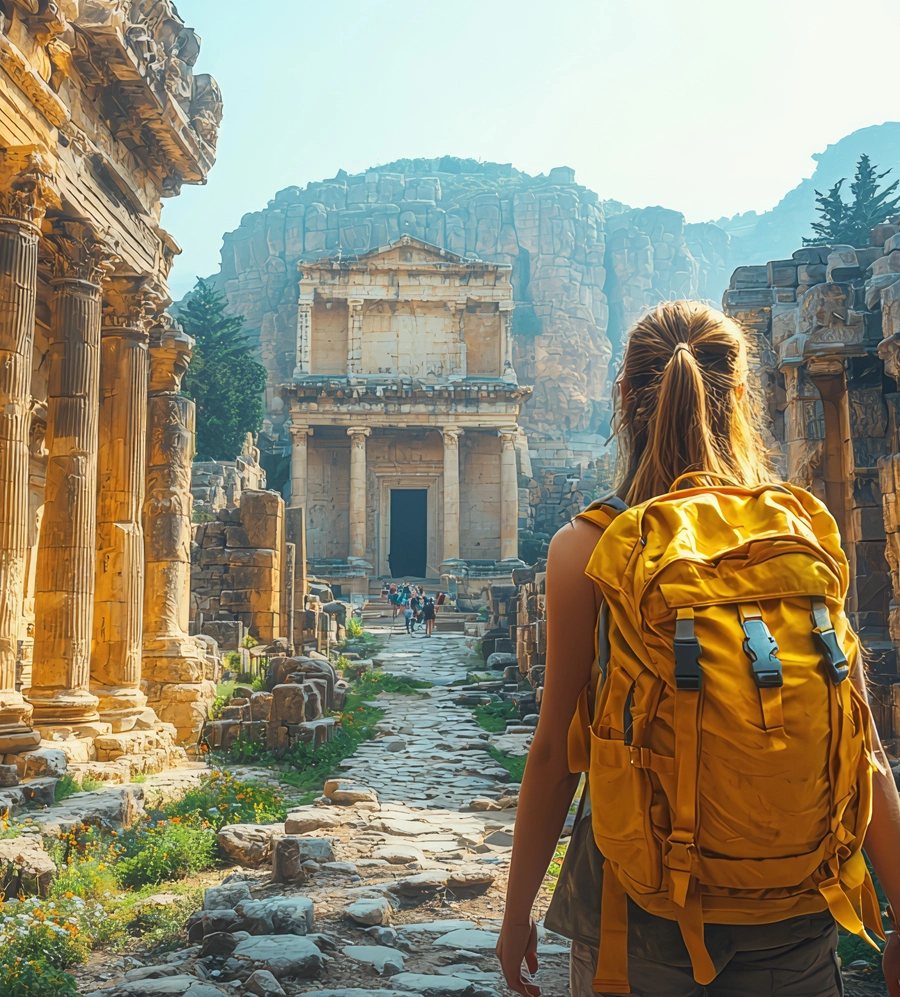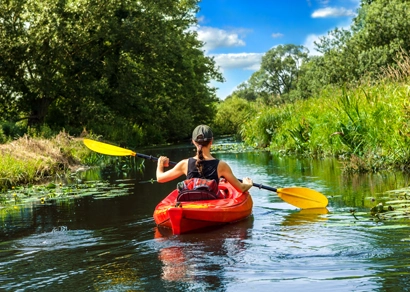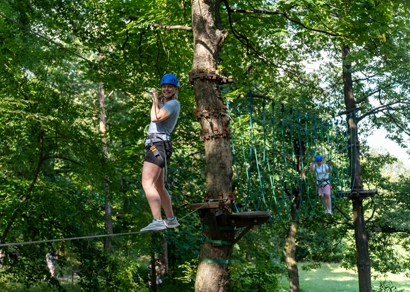

From Experience to Meaning
Travelling differently: the new expectations of travellers
Today’s travellers are no longer looking just to visit places, but to enjoy authentic, meaningful experiences. Far from mass tourism, they now prefer immersive stays, human exchanges, eco-responsible accommodation and less-frequented destinations. The search for well-being, slowness and positive impact is becoming central. These new expectations reflect a profound change in the way travel is conceived, with a growing desire to anchor oneself in reality, respect local cultures and limit one’s environmental footprint.

Diverse types of travel for tailored itineraries and unique adventures
The way we travel has evolved considerably, adapting to the new priorities of individuals in search of unique and enriching experiences. Travel is no longer simply a means of getting around, but a way of refocusing, surpassing oneself or learning in a new way. It can respond to a need to escape, to reconnect with oneself, or to open up to the world. Through this diversity of approaches, travelers seek above all to give meaning to their stays, in line with their deepest desires and personal values.
Adventure travel
Aimed at thrill-seekers, this type of trip focuses on exploration, physical challenges and sometimes extreme natural environments.
Cultural travel
Discover the history, art, traditions and heritage of the destinations you visit, often through museums, historic sites or festivals.
Well-being travel
Designed to rejuvenate, it focuses on relaxation, with retreats, spa stays, yoga or activities linked to personal development.

Lodging with purpose
Tourist accommodation solutions for comfort, sustainability, and local charm
Tourist accommodation options are evolving to meet the growing demand for comfort, environmental responsibility, and authentic experiences. An apartment-hotel with Adagio City is ideal for short or long-term stays. They generally offer a fully-equipped kitchen, living room, one or more bedrooms, and sometimes even hotel services such as housekeeping, 24-hour reception or laundry.
Travelers today seek places that offer more than just a place to sleep — they want cozy, well-equipped stays that reflect the local character and minimize ecological impact. From eco-lodges built with natural materials to charming guesthouses rooted in regional traditions, the focus is on creating memorable stays that combine warmth, sustainability, and cultural immersion. This shift reflects a broader desire for travel that feels personal, respectful, and connected to its surroundings.

Transport and mobility services for seamless travel between destinations
Whether by train, bus, car rental, or shared mobility solutions, modern travelers expect flexible, reliable, and well-connected options to move easily between destinations.
Innovations like real-time route planning, mobile ticketing, and eco-friendly vehicles enhance convenience while reducing the environmental footprint. By improving accessibility and coordination across various modes of transport, these services contribute to a more enjoyable and stress-free journey, making it easier for travelers to explore regions at their own pace.
Immersing yourself in the local culture: authentic travel experiences
Immersing yourself in the local culture of a destination enables you to experience an authentic Parisian experience that goes far beyond mere sightseeing. By meeting the locals, taking part in festivals or learning about traditional practices, travelers have the opportunity to forge deep bonds with the customs and lifestyles of a region.
Discovering local gastronomy, exploring emblematic sites or taking part in craft workshops enrich the experience, offering a real insight into the country’s history, values and beliefs. This immersive approach takes you away from mass tourism to experience authentic, unforgettable moments.

From relaxation to discovery
Must-do leisure activities for a rewarding trip

Water sports kayaking and paddling
Experience thrills or serenity on the water while exploring coastal or river landscapes.

Spas and wellness treatments
Relax in soothing surroundings with massages and regenerating treatments for body and mind.

Climbing or accrobranche
Test your agility and daring by climbing rocks or venturing into the trees.
Savour the Journey
Discover local flavours on your travels
One of the greatest pleasures of your travels is undoubtedly the discovery of local flavours. Each region has its own culinary identity, shaped by its history, traditions and natural resources. By exploring local markets, sampling typical dishes in family-run restaurants or taking part in cooking classes, you’ll become fully immersed in the local culture.
Whether you’re sampling a regional specialty, such as a spicy curry in Asia or an artisanal cheese in Europe, every meal becomes a sensory adventure, a true invitation to discover a new world through taste.
Environmental preservation
and resource management
Sustainable tourism places a strong emphasis on environmental preservation. It encourages travelers to adopt eco-friendly behaviors by choosing destinations that protect their ecosystems and supporting local conservation efforts. This includes practices like reducing carbon emissions, choosing eco-friendly transportation (such as biking or public transport), and respecting protected areas. Eco-friendly accommodations that use renewable energy and limit water and energy consumption also play a crucial role in sustainable tourism. The goal is to minimize the ecological footprint of tourism activities while ensuring that future generations can enjoy these same places.
Support for local communities
and economic development
Another key aspect of sustainable tourism is supporting local communities. By promoting local businesses, whether they are accommodations, tour guides, or food producers, travelers contribute to the economy of the regions they visit. This tourism model helps create sustainable jobs while preserving local traditions and cultures. Moreover, involving local populations in tourism management ensures that the benefits are shared equitably, and decisions are made based on the needs of the communities. Sustainable tourism also encourages the implementation of training programs to help residents engage in eco-friendly and responsible practices.